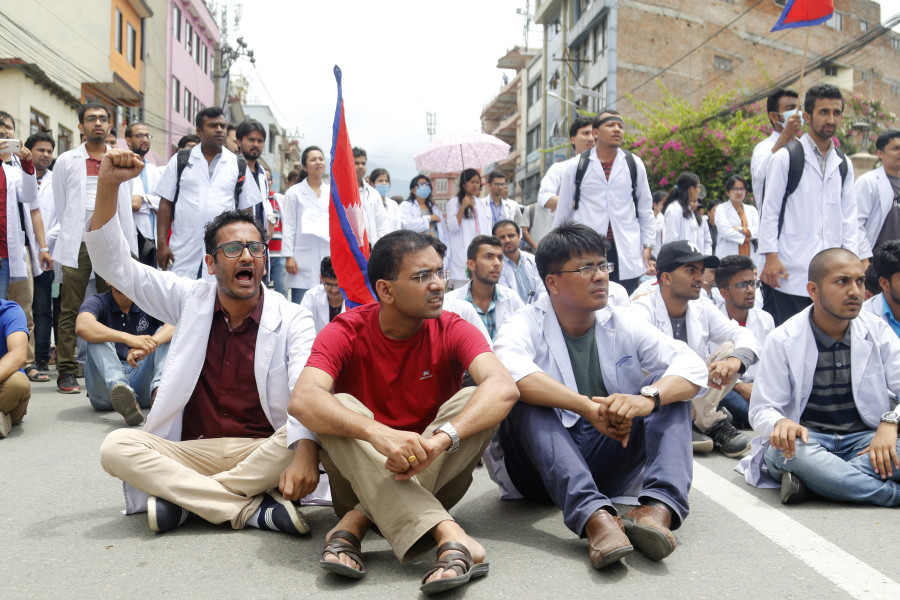National
National Medical Commission revising fee structure for MBBS course
Protesting students say setting new fees structure is not enough without assurance of its strict implementation.
Binod Ghimire
Amid students protesting over medical colleges breaching the government fee ceiling for MBBS and Bachelors in Dental Science degrees, the newly formed Nepal Medical Commission is revising the fee structure, which is to be implemented from the current academic session.
The commission formed as per the demand of Dr Govinda KC, a senior orthopaedic surgeon who has been fighting against malpractices in the medical education sector, has the authority to regulate the medical education sector. It also has the power to determine the fees for all levels of medical education and allocate the seats of the medical colleges.
“The new fees structure will be finalised very soon,” Dr Shree Krishna Giri, executive vice-chairman of the commission, told the Post. The government in October last year had set tuition fees for MBBS courses at Rs 3.8 million for private colleges in the Kathmandu Valley and Rs 4.24 million for those outside the Valley. The fee is Rs 1.9 million for the BDS course. But different studies have shown all the private medical colleges have been breaching the government ceiling and charging up to Rs 6 million for the MBBS degree.
Dr Giri told that the fee will be fixed after proper study and consultation with all the concerned parties. The college infrastructure, cost of operation, number of student seats, and number of faculties and officials need to be considered before determining the fees. However, medical students say setting the fee ceiling is not enough without assurance of its strict implementation.
“We want the commission to ensure the fee structure will be strictly implemented,” said Anit Sinha, a third-year MBBS student in Gandaki Medical College who also is a general-secretary of Medical Student Struggle Committee. The Student Struggle Committee has been on a protest for weeks, demanding they be refunded for the additional fees they were forced to pay.
Students are saying they will halt admission procedures unless their demands are met, which are: 1) medical colleges should refund all students the additional fees they were charged with and 2) the commission should fix the fee ceiling, and 3) students’ seats should be allocated by conducting a common entrance test for the MBBS and the Post Graduate degree.
However, Tribhuvan University and Kathmandu University have already conducted the entrance examinations for medical education, and the admission process is about to start. There are 21 medical colleges in the country, of which, 15 are operated privately.
The commission, however, has assured for a common entrance for the Post Graduate degree from the new academic session that begins in April 202o. It has also committed to enforcing 75 percent scholarship quota for the degree in the state-run medical schools.
As a result of weeks of protests, Chitwan Medical College, one of the colleges who were charging exorbitant prices, has assured it will refund the students their money, but others are reluctant in doing so. At Gandaki Medical College, negotiations between the students and the administration of the college on Monday couldn’t reach a conclusion. Teaching-learning activities have been stalled for around two weeks in the college.




 20.12°C Kathmandu
20.12°C Kathmandu














